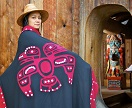November Is National Healthy Skin Month!
Skin health is essential to overall health. The skin is the largest organ of the body and plays an important role in protecting it. The skin holds in body fluids, prevents dehydration and keeps out harmful germs. It’s important to keep your skin healthy to prevent sickness or damage to the bones, muscles and internal organs.
This issue, featuring information on how to maintain healthy skin, is brought to you by the National Institute of Arthritis and Musculoskeletal and Skin Diseases (NIAMS) and the National Cancer Institute (NCI), part of the National Institutes of Health (NIH).
Featured Health Information
Atopic dermatitis causes the skin to become extremely itchy. Often, for those who have this condition, the skin gets worse and then it improves or clears up. The new NIAMS health topic page on atopic dermatitis describes the different types of dermatitis and provides a list of things that make atopic dermatitis worse as well as treatment suggestions.
Psoriasis is an autoimmune skin disease that causes red, scaly skin that may feel painful, swollen or hot. People with psoriasis are more likely to get some other conditions, such as cardiovascular problems and diabetes. This online resource describes what psoriasis is, what causes it and what the treatment options are. It also features publications that can be ordered or downloaded for health education efforts in your community.
Scleroderma is the name for a group of diseases that cause patches of tight, hard skin. Some forms of scleroderma can also damage blood vessels and internal organs. On this webpage, you can learn about the different forms of scleroderma and get information on diagnosis and treatment, including what people can do to help manage their disease and the problems associated with it.
The brochure Anyone Can Get Skin Cancer aims to dispel the belief that only people with light skin are at risk for skin cancer. Although people with light skin have a greater risk than people with darker skin, people with darker skin can also be at risk.
The sun, sunlamps and tanning booths all give off ultraviolet (UV) radiation. Exposure to UV radiation causes early aging of the skin and skin damage that can lead to skin cancer. The online resource Risk Factors: Sunlight provides tips for protecting the skin against the harmful effects of sunlight.
The NCI Skin Cancer page for patients provides an overview of the most common type of cancer—skin cancer—and the different types. It also gives detailed information about the causes, symptoms, diagnosis, treatment and follow-up care for skin cancer.







